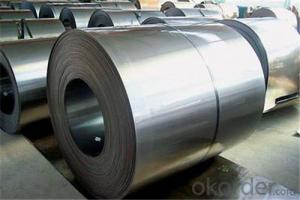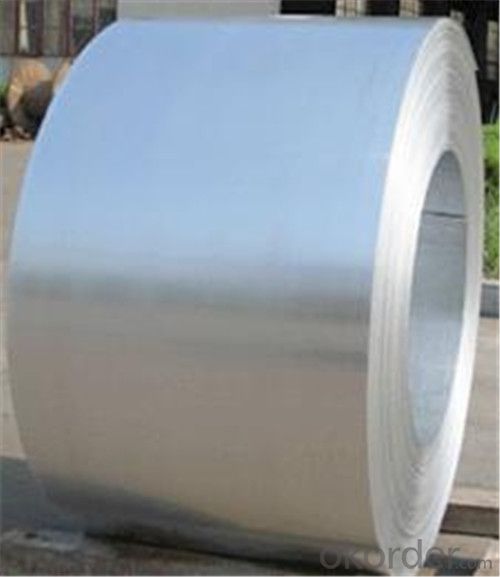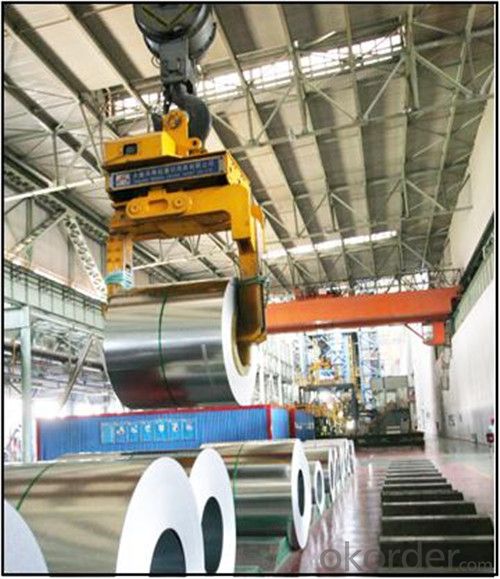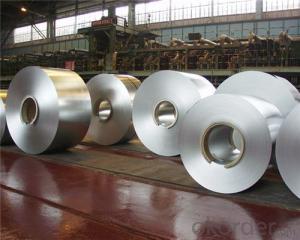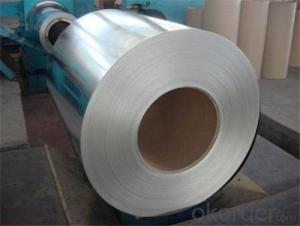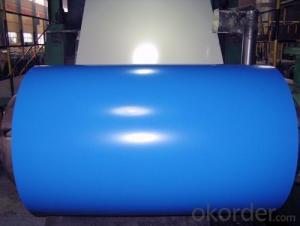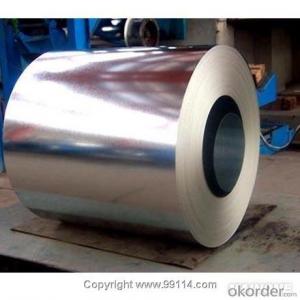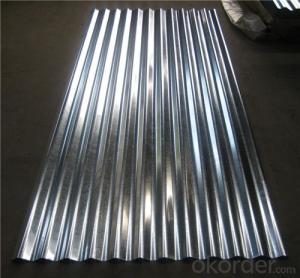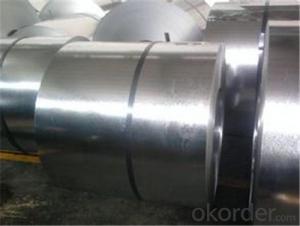cold rolled steel coil for roofing construction
- Loading Port:
- Shanghai
- Payment Terms:
- TT OR LC
- Min Order Qty:
- 36 m.t.
- Supply Capability:
- 30000 m.t./month
OKorder Service Pledge
OKorder Financial Service
You Might Also Like
SPCC, SPCD, SPCE, SGCC, DC01, DC02, ST12,Q195, Q215, Q235
1). Thickness: 0.14~2.0mm.
2). Width: 600mm~1500mm; 762MM/914MM1000MM/1250MM/1500MM
3). Surface: Full Hard, or bright anneal , or Drawing Quality, Oiled, Slightly Oiled, Unoiled
4). Quality: No Joint, No Bends, no spots, no roller marks.
MTC will be provided with goods, third part inspection is acceptable, for example, SGS, BV. Etc
5). Coil ID: 508mm or 610mm
Coil Weight: 3~8MT as per client's requirement
6). Package: Mill's Standard Seaworthy Package.
7). Delivery: within 30days since prepayment or L/C confirmed
8). Application: Construction, raw materials for HDGI or PPGI, furniture
material | Q195,Q195L,Q195LD,Q215,Q235and 08AL SPCC SGCC DC01 |
Thickness | 0. 14 - 2.0mm |
Width | 600mm - 1500mm |
tolerance | Thickness tolerance : +/- 0. 02mm; Width tolerance : +/- 2mm |
type | full hard or bright anneal |
Surface treatment | Chromate, oiled/unoiled |
spangle | Regular spangle, minimized spangle, zero spangle |
surface | no-skin passed or skin passed,tensil leveld |
grade standard | JIS G3302 , EN10142, ASTM653, ASTM95 |
Packing | Seaworthy packing, steel packing and steel pallet |
Applications | Construction,hardware,home appliances,interior decoration |
- Q: I got my dog those nice looking stainless steel water and food bowls (looks great next to my kitchen appliances...haha). The thing is my dog will drink from the toilet or a plastic bowl but not out of his bowl...I was wondering if those stainless steel bowls change the taste of food and water?
- It is possible. Stainless steel is usually mixed with a few other metal compounds to create certain properties for it, like iron for durability, and nickel and silver for luster(so they look good in your house!). It is very possible that your dog is tasting some of those metals in his water, and since his senses are a lot keener tan ours, it may bother him. My dogs drink out of a stainless steel bowl, and they do fine, so it may be your dog's own personal preference to drink out of someting non-metal. Just give in to him and give him a nice-looking plastic or ceramic bowl. (Hint: Ceramic keeps his water cold longer!)
- Q: What are the common surface defects found in steel coils?
- Some common surface defects found in steel coils include rust, scratches, dents, pits, and mill scale.
- Q: How are steel coils processed for slitting or shearing?
- Steel coils are processed for slitting or shearing by first uncoiling the coil and then feeding it through a slitter or shear machine. The machine applies pressure or cuts the steel coil into narrower strips or smaller pieces, respectively. This allows for the production of various widths or sizes of steel products, which can be used in different industries.
- Q: ive made lots of knives but they are dark and not shiny. how do i polish a knife and make it shiny
- If the steel knife is dark and not mirror-shiny, then it is probably carbon steel and not stainless steel. If they are carbon steel, then you cannot polish it to a mirror finish - sorry. If there's any rust on them, you can use a very-fine grit sandpaper to remove. Do not put carbon steel knives in the dishwasher, and dry them thoroughly after hand-washing. For long-term storage (meaning you don't plan to use the knife within the next few weeks), wipe the blade a bit with some mineral oil, then store the blade portion of the knife in a plastic bag.
- Q: How are steel coils used in the production of steel cables?
- Steel coils are used in the production of steel cables by being unwound and straightened to form individual wires, which are then twisted or braided together to create the cable.
- Q: I bought a Remington 870 super mag last fall and wanted to to switch to non-tox steel loads. The gun came with a modified rem choke. I know that not all chokes are qualified to handle steel. It doesn't say anywhere on the choke no steel I was just wondering if anyone out there knew for sure that those chokes that the guns come with won't get damaged be steel.
- Remington 870 Chokes
- Q: How are steel coils used in the production of shipbuilding materials?
- Steel coils are used in the production of shipbuilding materials as they are typically cut and shaped into plates, sheets, or beams that are then used to construct various components of a ship's structure such as the hull, decks, and bulkheads. The coils provide a reliable and durable base material that can withstand the harsh marine environment and ensure the structural integrity and strength of the ship.
- Q: hey i was looking to buy a khukuri machete by cas iberia. its made of carbon steel but doesnt say which one. anyone that is into knives and all that know how this would hold up and the rust resistance of it? mostly be used for cutting bush and small trees
- Ricki is correct. There is no way to tell how much carbon is present just from the term carbon steel. It comes in a wide range of grades within the general classifications of low, medium, and high carbon steel. What you'll get depends on the quality of the knife. As the carbon content increases, the steel becomes harder, stronger, and more responsive to heat treatment. It also becomes more brittle, so a **very** high carbon steel would not be the best thing for a machete. As Ricki said, plain carbon steels are not rust resistant. However, I have had a carbon steel machete for over 40 years and it's just fine. If you take care of it, it will last.
- Q: How are steel coils used in the production of automotive parts?
- Steel coils are used in the production of automotive parts as they serve as the primary raw material for manufacturing various components such as body panels, chassis, and structural parts. These coils are processed through different techniques like cutting, stamping, and welding to shape and form the desired parts. The strength and durability of steel make it an ideal material for automotive applications, ensuring the safety and performance of vehicles.
- Q: How are steel coils used in the production of steel chains?
- Steel coils are used in the production of steel chains by being unwound and fed into a machine that shapes and forms the individual links of the chain. The steel coils provide the raw material needed to create the strong and durable chains, ensuring they have the necessary strength and integrity for various applications.
Send your message to us
cold rolled steel coil for roofing construction
- Loading Port:
- Shanghai
- Payment Terms:
- TT OR LC
- Min Order Qty:
- 36 m.t.
- Supply Capability:
- 30000 m.t./month
OKorder Service Pledge
OKorder Financial Service
Similar products
Hot products
Hot Searches
Related keywords
